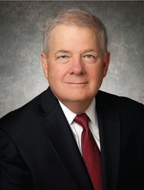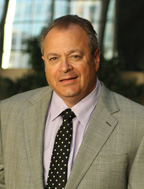
The evidence is all around us: Occupy Wall Street’s claims that 99 percent of the people are somehow being deprived by the aggregate wealth of the top 1 percent; criticism of Mitt Romney for having been part of the private-equity firm Bain Capital; arguments that, even within the most progressive income-tax structure in the world, rich Americans aren’t paying their “fair share.”
Taken individually, those subjects might be fodder for serious discussions about what capitalism, private equity or tax policy should look like. Taken together, they demonstrate that a significant faction continues to reject the ample evidence that our economic system has elevated more people from poverty to the middle and upper classes than any other economic model in history. Worse, they suggest that the very concept of prosperity is under attack.
But if you dig a little deeper—or solicit opinions from different sources—it becomes much easier to see what prosperity means, not just to the nation, but to all of us in the Kansas City region. That’s what we at Ingram’s learned when we asked key figures from the local business community and other organizations to reflect on the true value of growth, success and prosperity. When it comes to People, Power and Money, their views serve as effective counterweights to arguments that the system we’ve got isn’t working. It might not be working perfectly, but as their reflections tell us, it’s doing a lot of good—and not just for those who are doing well.

Russell Welsh, chairman & CEO
Polsinelli Shughart
The shareholders of Polsinelli Shughart, a Top 100 U.S. law firm by lawyer count, know a prosperous arrangement when they see it. The firm’s forerunner had 90 attorneys and four offices in 1998; today, it has more than 500 lawyers in 16 offices nationwide. And that growth came after shareholders voted Russ Welsh into the role of chairman and CEO of the firm. That’s one reason why they voted him to a fourth term in 2010.
Funny how that kind of outcome seems to follow people with a cast-iron work ethic. “I have worked since I was 10 years old, either in part-time or full time jobs,” he said. “My mother is 86 years old. She has her own business and works six days a week.”
“I am fortunate,” he says in a bit of lawyerly understatement, “to have been raised in a family with a very strong work ethic.”
But beyond that, he believes the firm’s success flows from an articulated vision: “We have a focused strategic plan that is communicated and endorsed by our shareholders,” Welsh said. “Having a clearly understood plan has allowed us to invest in our future success without sacrificing our current profitability.” That will be important in the coming years, he said, because he sees the profession as being “in the midst of great change.”
“We have to be nimble enough to adapt to the changing environment without sacrificing our culture and our values,” Welsh said. “In addition, as we have grown, we have resisted the urge to be the same as other large national firms. We have to continue to differentiate ourselves from our competitors.”
As events in Washington and state capitals over the past few years have increased the regulatory load, Welsh has overseen acquisitions to strengthen the firm in key areas of public policy, corporate environmental and litigation practices and health-care law. Those moves have come on the heels of expanded governmental reach into the affairs of financial services, real estate and other sectors, creating waves of change in business law and litigation practices.
Those moves have shaped his views on the way prosperous organizations are being portrayed in the current economic and political climate. “We are in a time of divisive politics,” Welsh says. “On one side, criticism is leveled against teachers and public employees, and on the other side, against Wall Street. The tone of the campaign on both sides is not conducive to governing effectively to deal with the economy or social needs.”
Does he see any remedies for that? “The business sector needs to be more involved politically,” he declares.

Ira Glazer, president & CEO
WireCo World Group
Transferring wealth from one person to another is a zero-sum game. True prosperity—wealth creation—is something completely different. Yes, capitalism may have a darker side when business fails, but many an organization has emerged from the ruins of bankruptcy to reclaim a legacy of growth.
Just ask Ira Glazer. He’s orchestrated just such a turnaround at WireCo World Group. A decade ago, it was the financial wreck known as Wire Rope Corp. of America. The new owners knew they needed a turnaround specialist to transform an industrial-age legacy business into a competitive, modern fire-breather. They brought Glazer on board in 2003 with a title you don’t hear often these days: Chief Restructuring Officer. Today, WireCo World Group is one of the 30 largest private companies in the region, and among the top handful that operate internationally from a Kansas City base.
Last year, the company’s revenues rose by an impressive 35 percent, surging past $600 million. With more than 3,400 employees and production facilities in the U.S. and China, the company’s steel industrial cables and other products are well-positioned within both the world’s leading economy and the planet’s biggest nation-market.
What does the presence of a thriving organization like WireCo mean to Kansas City? “I think there’s an aura that comes from having a successful company on a world-wide basis,” Glazer says. “A company like ours can raise the prestige of the home base, and that helps with relocation and recruiting not just for our company. It’s like the Beget Theory—it helps us attract young professionals; it helps everybody attract young professionals.” And because WireCo’s staff is “extremely well-paid,” he said, the Kansas City economy overall benefits.
WireCo’s rise back to prominence was grounded in this New York native’s simple formula for success: “We’re never satisfied,” he says. “Even when you have the growth curve we’re on, we try to make people better every day. You’ve got to believe in your people—that’s the Holy Grail.”
As is a well-defined business plan, and one that executives stick to, he said. “You have to have priorities, you have to execute them properly, and not come up with a different plan every day.”
Like many a successful late-career business executive, Glazer has been at it for a while. “I’ve been working since I was 17,” he says. “That’s 44 years, night-school grad, but I’ve been fortunate to have worked for people, a lot of whom showed me what to do, and a lot of whom showed me what not to do,” he said.
The behaviors of executives who have made headlines with their business failures are highly individualized, he said, but often share a common thread: “Guys with superiority complex at the top who start thinking ‘I can do anything,’ ” Glazer said. “What they usually find out is that they can’t just do anything.
“They become overwhelmed with the desire to succeed, or overwhelmed by success itself. Fortunately, there’s not too many in Kansas City who make headlines like that.”